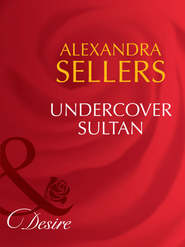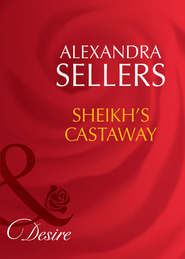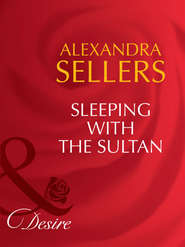По всем вопросам обращайтесь на: info@litportal.ru
(©) 2003-2024.
✖
Sheikh's Ransom
Автор
Год написания книги
2018
Настройки чтения
Размер шрифта
Высота строк
Поля
When he died the old sheikh’s will was revealed: the kingdom was to be divided into three principalities. Each of his sons inherited one principality and its palace. In addition. they each inherited one of the ancient Signs of Kingship.
It was the will of their father that they should consult the Grand Vizier Nizam al Mulk for as long as he lived, and appoint another mutual Grand Vizier upon his death, so that none would have partisan advice in the last resort. Their father’s last command had been this: that his sons should never take up arms against each other or any of their descendants, and that his sons and their descendants should always come to each other’s aid in times of trouble. The sheikh’s dying curse would be upon the head of any who violated this command, and upon his descendants for seven generations.
So the three princes grew to maturity under the eye of the old queen and the vizier, who did their best to prepare the princes for the future. When they reached the age of twenty-five, they came into their inheritance. Then each prince took his own Sign of Kingship and departed to his own palace and his own kingdom, where they lived in peace and accord with one another, as their father had commanded
To Prince Karim’s lot fell the seaside palace of the country now called West Barakat, and the protection of the Great Jewel Seal of Shakur. This emerald seal, made for an ancient king of the lineage, was the subject of a legend that warned that if the Seal were lost, the kingdom would be lost. Karim knew that his people were superstitious, and that he must ever guard and keep the Seal if he valued his kingdom.
One
October 1994
“A historic moment in the Barakat Emirates today,” the NewsBreakers anchorman announced. “A landmark agreement, opening the Emirates to foreign investment for the first time in modern history, is being signed this morning by the representatives of four countries and the three new Barakati princes. In a few moments, NewsBreakers will take you live to the capital of the Barakat Emirates for the ceremony of signing. Except for a few diplomats over the centuries, this marks the first time that Westerners have seen inside the historic palace.” He turned to his partner. “It’s going to be quite an occasion, Marta.”
“Yes, Barry, it is! Barakat has been virtually closed to Western interests for most of the past two centuries. Even the old sheikh, who was relatively modern in his views, restricted foreign investment and even tourism throughout a reign that began in 1937, effectively cutting Barakat off from the modern world. When he died—”
“Marta, sorry to interrupt, I think we’re going live now—to the palace in the capital, Barakat al Barakat, where television cameras have been allowed into the Throne Room for the first time in history. Paul, are you there?”
“Hello, Barry, yes, the representatives of the Four Nations are already at the signing table as you see, and we’ve just had word that the princes are on their way,” a reporter’s voice murmured, over the image of a magnificent marble hall filled with milling dignitaries. “At this moment they have apparently just left the private apartments and are making their way to the Throne Room along a corridor—it’s called the Corridor of Decision—that their ancestors have used on state occasions since this palace was built in 1545. They will enter the Throne Room by the huge double doors that you see in the centre of the screen, behind the signing table. That’s the massive Lion Throne to the right of the doors.”
“Massive seems to be an understatement,” said Marta.
“We tried to get some statistics on the value and weight of the throne, Marta, and what kind of baubles are embedded in it, but the habit of secrecy...all right, the doors are opening now—those doors are being opened, by the way, by high courtiers, not by menials, and it’s a task they vie for—and first through the door, we’ve been briefed, will be the Grand Vizier Nizam al Mulk, the favorite advisor of the last sheikh and joint Regent during the minority of the princes, which ended only last year...and there he is! The Grand Vizier of the Barakat Emirates.”
A white-bearded old man of impressive dignity, his costume sparkling with jewels, was seen walking through the great doorway. He paused briefly and moved down the steps towards the table below.
Paul murmured, “That, we’re told, is the traditional ceremonial dress of the Grand Vizier on state occasions, but you can believe the princes’ own regalia will put his in the shade. And of course the aura of power you sense is just that. Nizam was the Regent for seven years, his regency ending only last year, as I said, and he still has the very important role of advisor to all three princes.
“Just behind him are coming now the Prime Minister and the members of the Cabinet, all elected officials. Barakat is what they call a democratic monarchy...and following them, twelve men who hold the ceremonial office still called the Cup Companions, looking very magnificent in their own fabulous ceremonial robes. By tradition the king has twelve Cup Companions, and I believe each of the three princes does still appoint twelve, but to...ah, limit the formality of the occasion, we’re told,” Paul said dryly, “a representative joint twelve has been chosen on this occasion.
“And a dramatic pause, of course, because the next to appear—they will step over the threshold neatly abreast to show that they share power equally—will be the three princes themselves.
“And there they are!” In spite of a jaded outlook and, in the course of fifteen years in television news, having seen it all, Paul could not keep the excitement from his voice.
“Oh my God!” exclaimed Marta involuntarily. She had been anchorwoman only two years and had not quite attained the ideal of journalistic impassivity.
Across the threshold into the ancestral Throne Room stepped the three princes, equal but very individual exemplars of regal bearing, handsome countenance, and staggering magnificence. Those watching, both in the Throne Room and in front of their television sets, fell unconsciously silent for a few telling seconds.
“Well, if you’d asked me, I would have said it wasn’t possible in the modern age,” said Barry faintly, and in Barakat Paul merely murmured, “Yes, I think words would be superfluous here. That is a truly breathtaking sight.”
Framed by the graceful decorated arch of the ancient entrance, the three princes paused, smiling at the applauding crowd in the room below. Dressed in coats of heavy cloth of gold, trousers of gold-embroidered silk, and rings and necklaces studded with glittering jewels and glowing pearls, each also wore a magnificent and unusual turban of pleated cloth of gold, each adorned with a central jewel the size of a fist—one ruby, one emerald, one sapphire.
A camera angled for a closeup of all three at once, for the handsome faces, individually quite different, together seemed to present almost the embodiment of masculine beauty. Prince Omar, with his broad forehead, thin, aristocratic cheeks, haughty green eyes and neat beard, Prince Rafi, as handsome as a Persian miniature painting, with a dark mustache, and Prince Karim, with the clean-shaven dark good looks of an ancient desert warrior. They left no doubt as to their masculine as well as their political power.
“What a trio! Strong women are fainting all over this country as I speak,” Marta opined.
“Those three faces, as you see them there, with their ceremonial turbans, decorate every piece of money in the three kingdoms,” Paul told the viewers. “There is a communal currency as well as a central Parliament in the Emirates. Karim on the left, wearing the sapphire on his turban, rules West Barakat, Rafi in the centre, under the ruby, is the Emir of East Barakat, and Omar is the ruler of Central Barakat. Those are the divisions their father made when, like King Lear, he divided his kingdom so that all his sons should inherit. It has worked better than King Lear’s arrangement, though, it has to be said.”
“How old are the princes, Paul?”
“They all turn twenty-six next week, Marta, but in case any of our female viewers is thinking about throwing herself in front of their horses, I should point out that Prince Omar is already married and has two young children.”
“But it’s open season on Prince Rafi and Prince Karim?”
“You can safely put on your hunting jacket for them, Marta.”
As one, the three princes moved forward and down the red carpeted marble steps to the signing table as the ranks of the world’s photographers parted before them. The members of the Four Nations, looking oddly plain in black dinner suits, stepped forward, and all shook hands with one other.
“If you’re interested,” Paul said, “that’s a total of seventeen handshakes taking place there now, but of course, it’s all going on simultaneously, in keeping with the strict public protocol that keeps the princes equal.”
At the long, polished black table, six men and a woman took their seats in a row facing the cameras of the world. In front of each place was a large closed book, its gold cover embossed with the insignia of Barakat, the mythical bird called the Senmurgh.
“Now each of the signatories to the agreement will sign each of the seven books and take one home,” Paul explained. Onscreen seven assistants could be seen like a small troupe of dancers in an almost perfectly choreographed grapevine step, picking up a book after each signature and weaving through his or her partners in the dance to place it in front of the next dignitary. “This, by the way, is what’s referred to here as ‘approval in the Western tradition.’ By tradition it is not considered binding for a Sheikh of Barakat merely to sign a document.”
At the end, to another gentle round of applause from courtiers and observers, the seven assistants, each clutching a book, bowed to the table and moved to one side of the Throne Room.
“And now for the ceremony without which no treaty or state document has been legal in Barakat for hundreds of years,” said Paul. “No document is binding on any Barakat monarch until the monarch has stamped the document with the Great Jewel Seal of Shakur and drawn the Sword of Rostam over it, and finally, all the signatories have drunk from the Cup of Jalal.
“All of these ancient items have been the property of the Barakat royal house for six hundred years or more. In addition to dividing the kingdom, Sheikh Daud’s will decreed that his sons should each individually inherit one of what are, for their subjects at least, powerfully evocative symbols of monarchy.”
A large ivory-colored parchment was now carried by the Grand Vizier to a marble table that stood to one side of the Lion Throne, placed on it, and unrolled. It was covered with ornate Arabic calligraphy of the highest quality, and, with its gold leaf and beautiful ink colours, resembled, to the Western audience, nothing so much as a page from a medieval illuminated Bible. It was held in place with two flat heavy sticks of ivory.
A courtier moved to stand beside the Grand Vizier, holding a small jar on a gold-and-silver engraved tray. Nizam al Mulk lifted the tiny golden urn and tilted it over the parchment. A thick, viscous red substance formed a pool in the centre of the top of the document.
Silence fell as Prince Karim approached. Just above his elbow the Great Jewel Seal of Shakur clung to his arm like a massive bracelet. He drew it off, then pressed the seal’s face firmly into the pool of sealing wax on the parchment paper. When he lifted the seal again it had left behind the impression of a raised profile portrait of a crowned head. With a glance at the red seal and another at the Jewel, he restored the seal to its place on his arm.
“That’s Prince Karim making the most of that particular ceremony,” Paul informed his audience in an even lower murmur now, as though impressed in spite of himself. “The portrait is of Sultan Shakur, the direct ancestor of the three princes, who died about 1030, and the inscription surrounding the head reads in part, ‘Great King, Sun of the Age, the Full Moon, World Conqueror, World Burner, the Throne of Mercy, the Sword of Justice, Defender of the Faith’ and a lot more. The entire bracelet was cut by a master craftsman from a single giant emerald. And, Marta, it weighs almost two pounds!”
“Oooh!” The anchorwoman shivered with affected greed. “Must be worth a king’s ransom!”
“Its worth is literally incalculable, because there is nothing else in the world to compare it to. The weight of the jewel alone puts it out of reach of most of us, but add to that the work of the sculpture—which is said, by those who have been privileged to study the ancient documents of this country, to be miraculously lifelike and artistic—and its value as a completely unique thousand-year-old artefact, and you’re looking at what they call ‘inestimable value.’ I asked three jewellers for a ballpark figure, and the closest I could get was—in open auction, the sky’s the limit.
“Now, there’s Prince Rafi, I believe, stepping forward. He will draw the sword over the document, and then lay the naked steel right across the parchment,” Paul murmured helpfully, as Prince Rafi did just that.
“The origins of that ritual are lost in the mists of time, and although it is now said to symbolize the monarch’s determination to defend a treaty with arms if necessary, it is thought by some that there was once another symbolism attached to it. Certainly it is true that if Prince Rafi were to draw the Sword of Rostam through the seal it would render the agreement instantly invalid. If he draws it against an enemy it signals a fight to the death.”
“How on earth do they keep track of all these customs?” Marta marvelled.
“Don’t forget they haven’t changed for a millennium. And now the Cup of Jalal is brought forward,” Paul spoke over her, “and now it’s Prince Omar’s turn. He will drink from the cup, sometimes called the Cup of the Soul, which is said by tradition to guarantee happiness to its owner, and then offer it to the signatories of the Four Nations, and lastly to his brothers. There’s the Grand Vizier Nizam al Mulk carrying the cup to the foreign leaders—the contents, by the way, are a dark secret. Only the signatories will ever know what they drank—that’s meant to be another form of protecting the treaty. And now Prince Rafi is drinking, and Prince Karim.
“And that is what is called ‘sealing in the Barakati tradition,’ so this historic agreement has now been formally signed and sealed, Marta, in one of the most impressive marriages of Eastern and Western tradition in modern times.”
Two
July 1998
“Will Mr. David Percy and Miss Caroline Langley please meet their driver at the Information Desk. Will Mr. Percy and Miss Langley—”
Caroline was hot. They had been left standing in the Royal Barakat Air plane for twenty minutes after something went wrong with the doors, but that hadn’t stopped the captain turning off the air conditioning. Then there had been an endless wait before the luggage from their flight made its appearance on the mile-long conveyor belt, and everyone had been pressing so close that Caroline—with a new appreciation of what it meant to say that people from the Middle East had a smaller “personal territory” than Westerners—had found it impossible to see her own bags till they were half the arrivals hall away. While she was wrestling them off the belt someone had filched her trolley, and rather than hunt down another one, she had simply carried her bags, a mistake she would not make again soon in an inadequately air-conditioned building.











